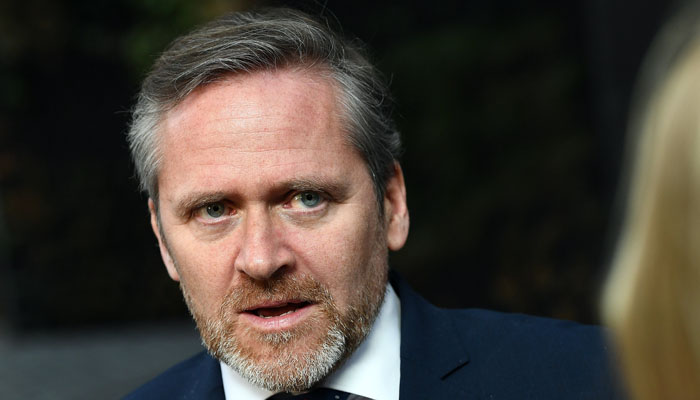Mehmet Dönmez, the Turkish ambassador in Copenhagen, was summoned by Denmark’s Foreign Minister Anders Samuelsen for clarification of claims that Danish-Turkish citizens are being denounced to the Turkish government over their views critical of President Recep Tayyip Erdoğan.
According to a report by Denmark’s Berlingske daily on Sunday, several Danish-Turkish public figures fear being denounced to Turkish authorities as traitors to the nation and terrorists.
Samuelsen told the Ritzau news agency that the denunciation of Danish Turks to Turkish authorities for being critical of Erdoğan was “in no way acceptable.”
“This is completely unacceptable. In principle, informing is the concern of the police,” he said.
He also said that the Turkish ambassador had been summoned to the Ministry of Foreign Affairs to get “clarity over what they may or may not know about this issue.”
Speaking with Berlingske on Sunday, former Danish MP of Turkish origin Özlem Çekiç said she had received a message on Facebook from a person that they would report [Çekiç] to the authorities in Turkey in order to blacklist her.
Underlining that she fears arrest in Turkey, Çekiç added that foreigners also are arrested in Turkey over their views against the Turkish government.
Last week, tensions became strained after Danish Prime Minister Lars Løkke Rasmussen requested that his Turkish counterpart, Binali Yıldırım, postpone a planned visit to Denmark after Turkish ministers were barred from holding referendum campaign rallies in Germany and the Netherlands, in support of Erdoğan.
According to figures by Turkey’s Finance Ministry in December 2016, Turkey has paid a total of TL 2.4 million in 2016 in rewards to citizens who have provided the state with useful information about others who are suspected of having committed a crime.
Since a failed coup attempt on July 15, Turkey’s President Erdoğan has been making repeated calls to people to report the followers of the faith-based Gülen movement to Turkish authorities so that they can be prosecuted.
Turkey survived a military coup attempt on July 15 that killed over 240 people and wounded more than a thousand others. Immediately after the putsch, the government along with President Erdoğan pinned the blame on the Gülen movement.
Despite Turkish Islamic scholar Fethullah Gülen, whose views inspired the movement, and the movement having denied the accusation, Erdoğan — calling the coup attempt “a gift from God” — and the government launched a widespread purge aimed at cleansing sympathizers of the movement from within state institutions, dehumanizing its popular figures and putting them in custody.
In the currently ongoing post-coup purge, over 135,000 people, including thousands within the military, have been purged due to their real or alleged connection to the Gülen movement, according to a statement by the labor minister on Jan. 10. As of March 1, 93,248 people were being held without charge, with an additional 46,274 in pre-trial detention.



